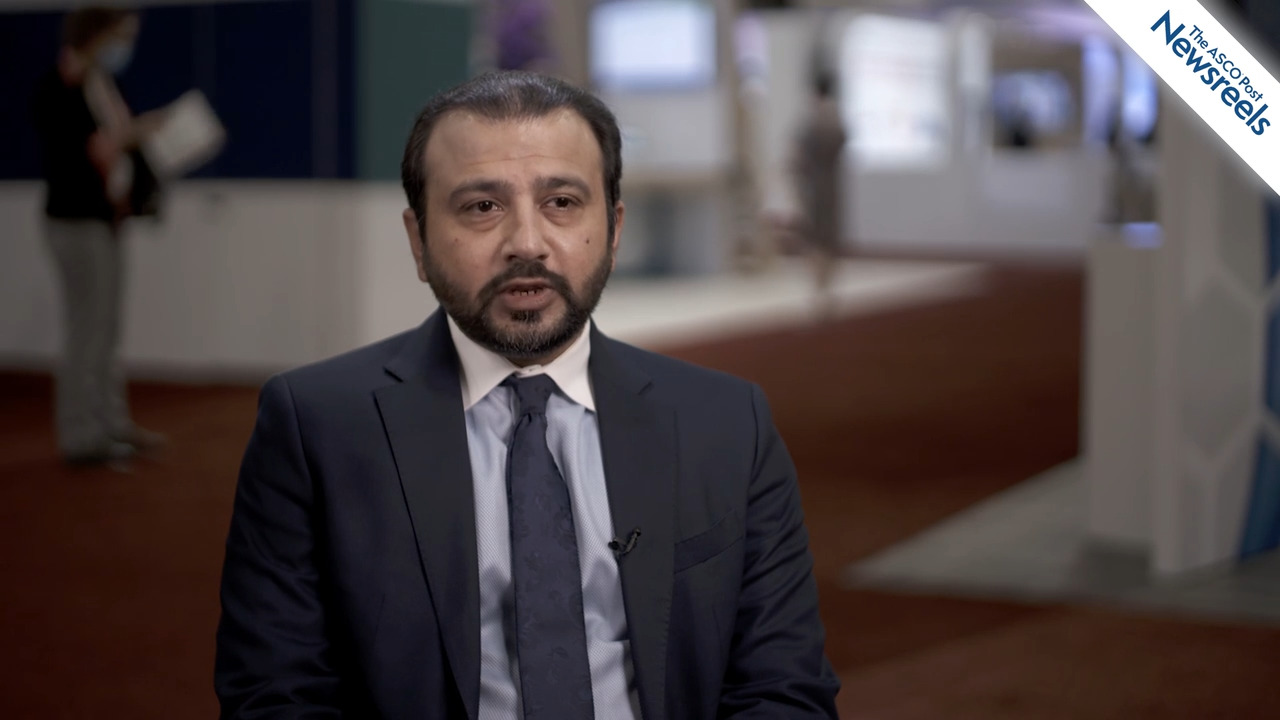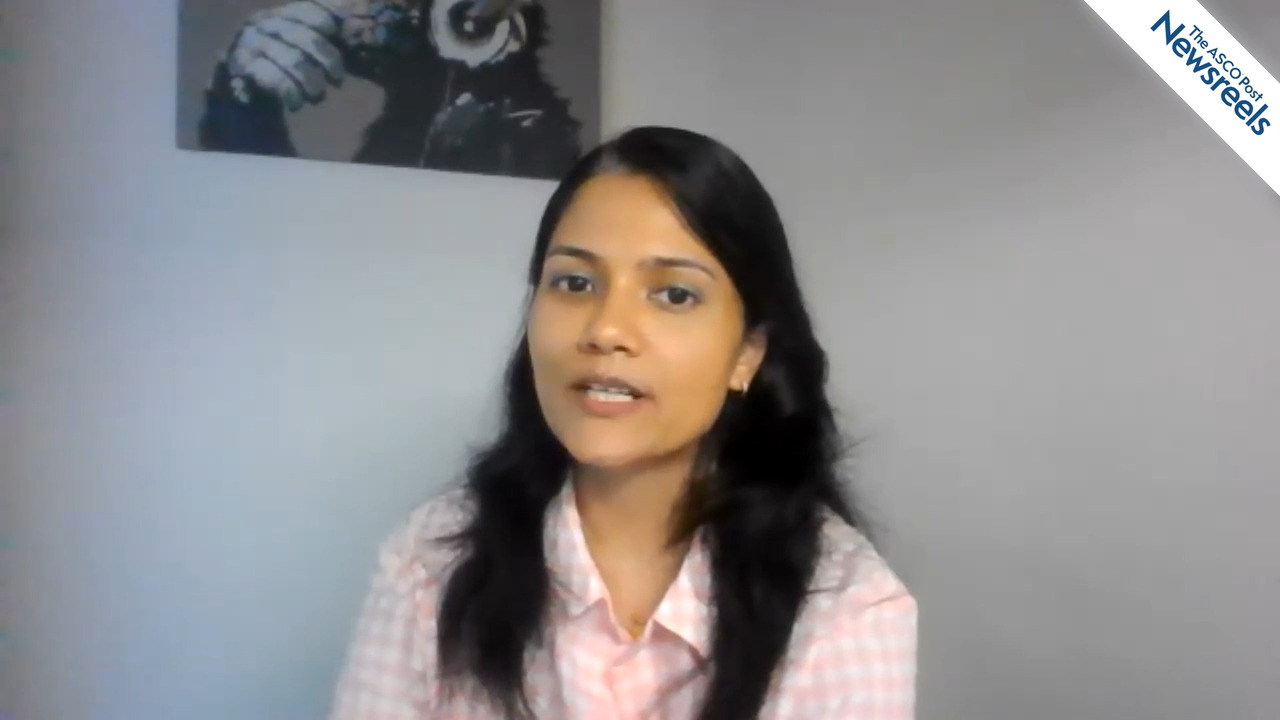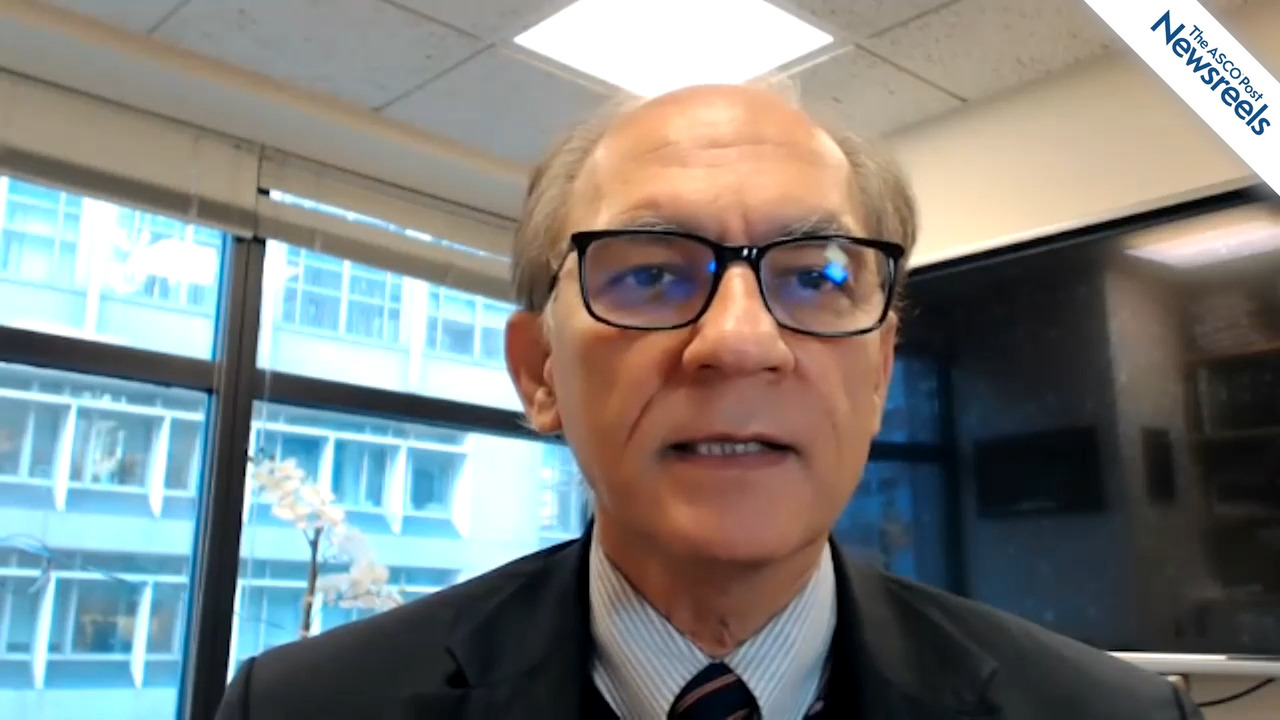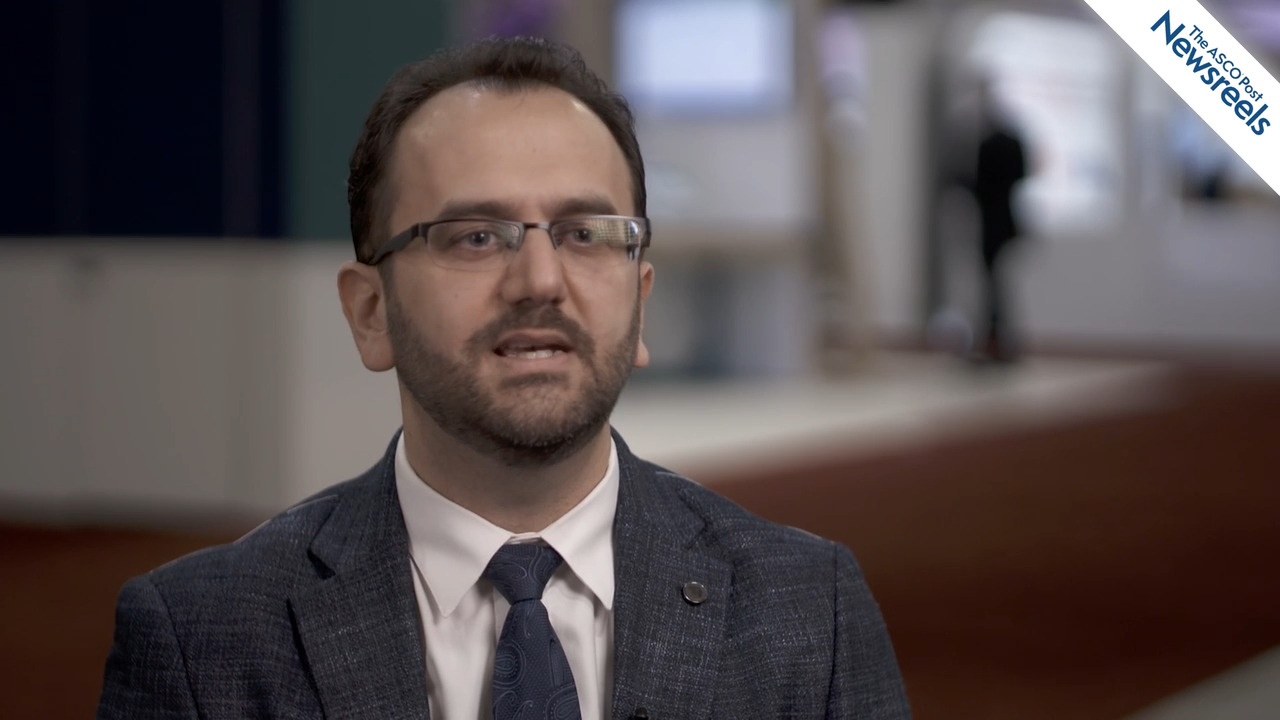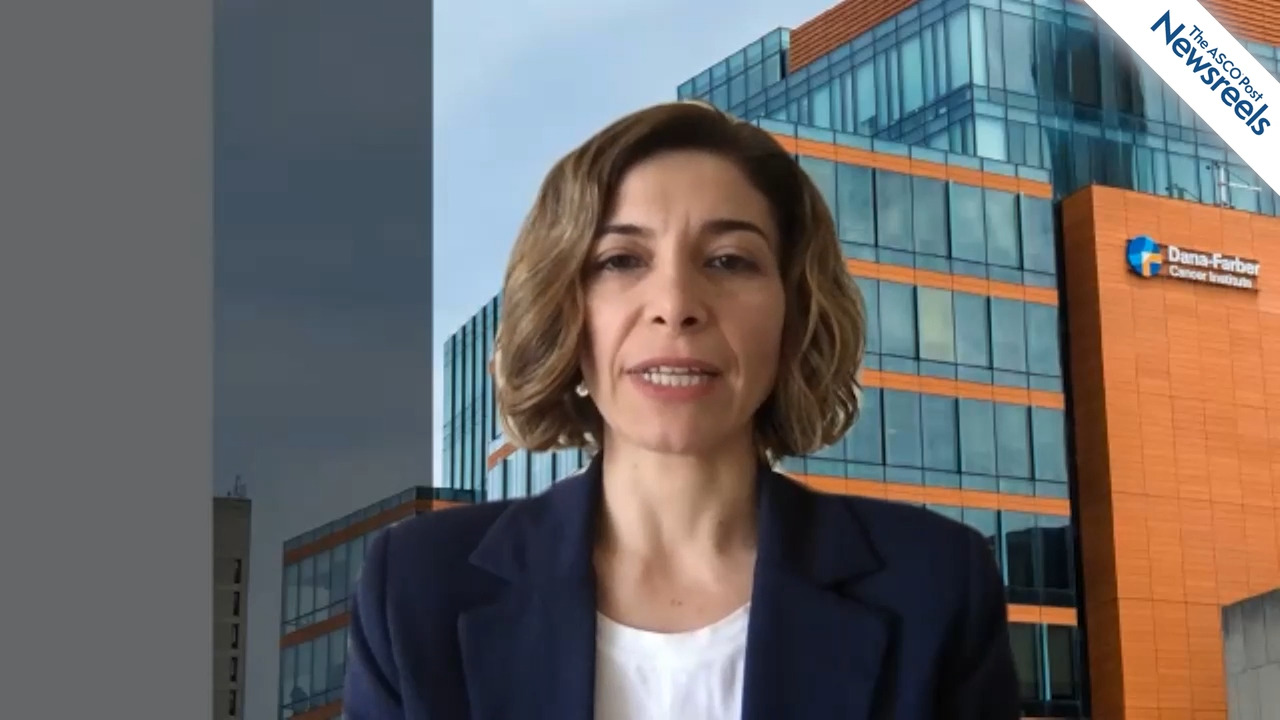Eunice S. Wang, MD, on FLT3-Mutated AML: Gilteritinib and Azacitidine for Intensive Induction Chemotherapy–Ineligible Patients
2021 ASH Annual Meeting & Exposition
Eunice S. Wang, MD, of Roswell Park Comprehensive Cancer Center, discusses phase III results showing that gilteritinib and azacitidine led to significantly higher composite complete response rates in patients with newly diagnosed FLT3-mutant acute myeloid leukemia who are ineligible for intensive induction chemotherapy. Overall survival was similar to that of azacitidine alone (Abstract 700).
The ASCO Post Staff
Talha Badar, MD, of the Mayo Clinic, discusses the near-universal poor outcomes for patients with TP53-mutated acute myeloid leukemia and the findings that show allogeneic stem cell transplantation appears to improve the long-term survival in a subset of these patients. Effective therapies may successfully bridge patients to transplant and prolong survival for those who are transplant-ineligible (Abstract 797).
The ASCO Post Staff
Sangeetha Venugopal, MD, of The University of Texas MD Anderson Cancer Center, discusses a retrospective analysis of 562 patients with treated secondary acute myeloid leukemia and prior exposure to hypomethylating agents (HMAs). The results showed that an HMA plus venetoclax yielded significantly higher overall response rates and improved overall survival compared with intensive chemotherapy or low-intensity chemotherapy, particularly in patients 60 years or older who had a karyotype without adverse risk (Abstract 794).
The ASCO Post Staff
Nikhil C. Munshi, MD, PhD, of Dana-Farber Cancer Institute, discusses the findings from a large nationwide Veterans Affairs study, which showed that, for patients with multiple myeloma, the effectiveness of the COVID-19 vaccine is reduced, likely due to patients’ immunosuppression. Dr. Munshi describes what next steps should be taken (Abstract 400).
The ASCO Post Staff
Musa Yilmaz, MD, of The University of Texas MD Anderson Cancer Center, discusses study results suggesting that quizartinib with decitabine and venetoclax is active in patients with FLT3-ITD–mutated acute myeloid leukemia and that RAS/MAPK mutations continue to drive primary and secondary resistance (Abstract 370).
The ASCO Post Staff
Anil Aktas-Samur, PhD, of Dana-Farber Cancer Institute, discusses study findings on the genomic characterization of non-progressor smoldering multiple myeloma, results that may provide a molecular definition of the disease as well as its risk-driving features. Combining this low-risk model with current high-risk models may possibly improve clinical trials for patients with this early precursor to myeloma (Abstract 545).
